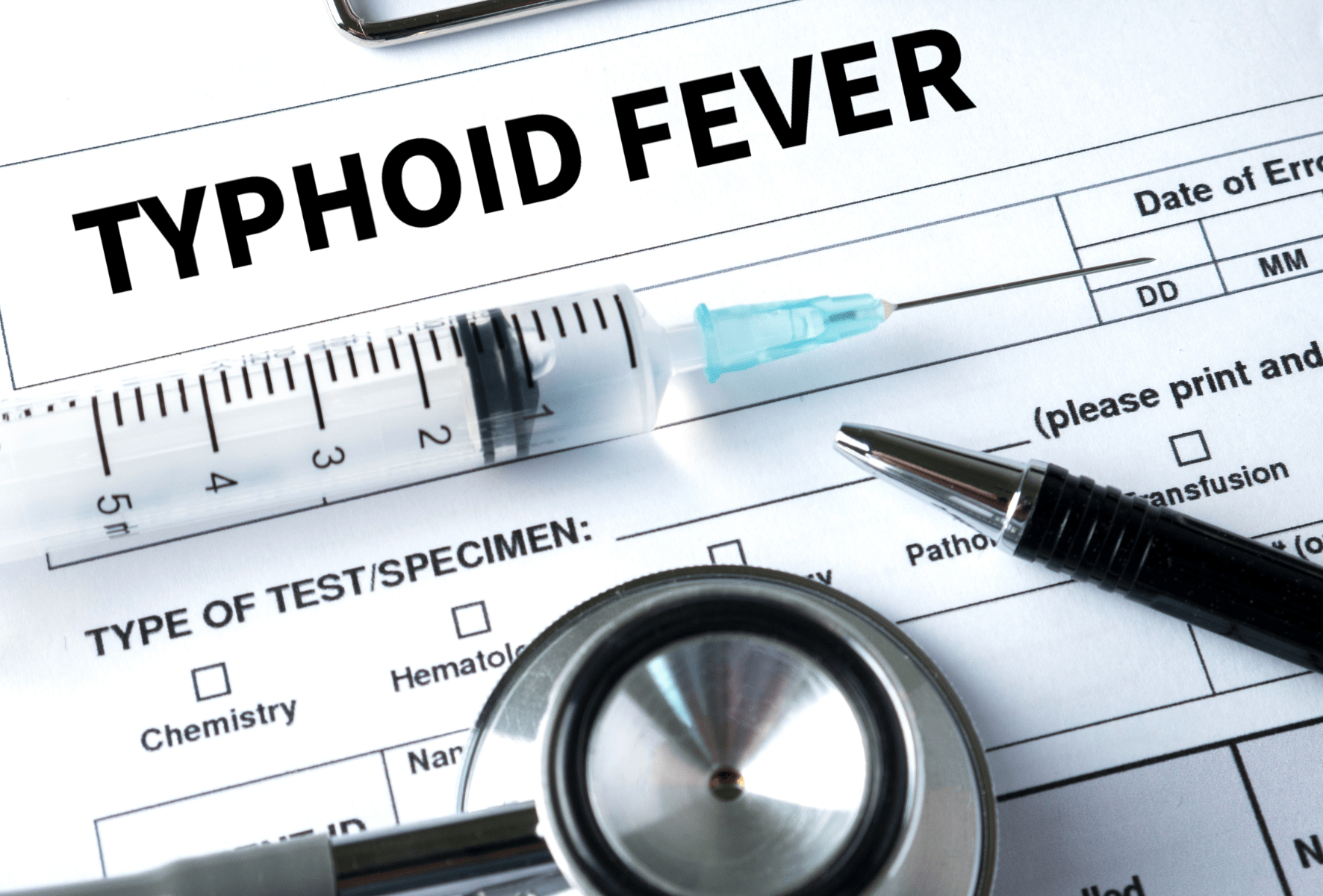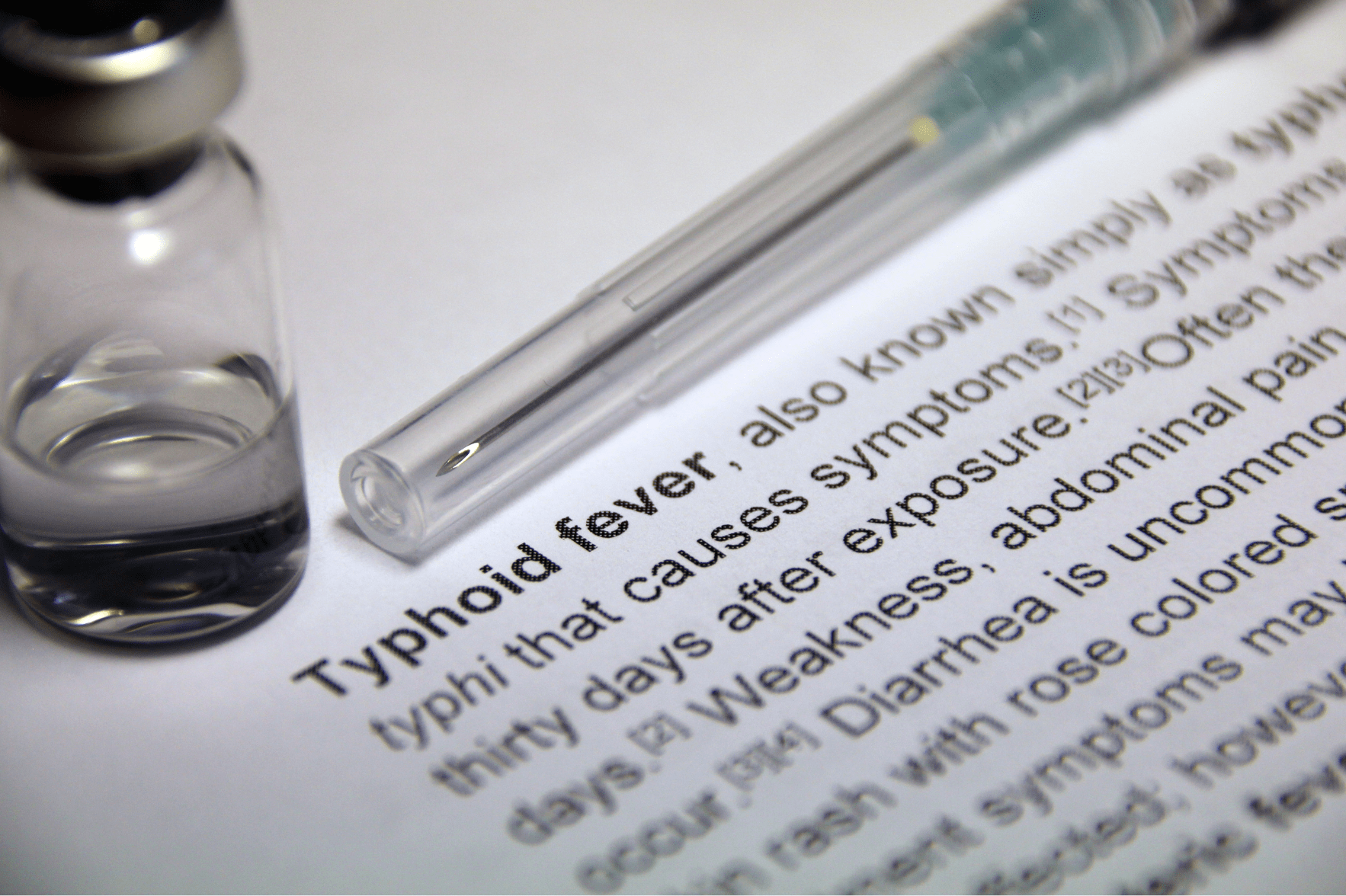
Nature’s Healing Touch: A Natural Remedy for Typhoid
Typhoid fever, caused by the bacterium Salmonella Typhi, is a serious and potentially life-threatening illness that primarily affects the digestive system. It spreads through contaminated food and water and is a major public health concern in many parts of the world. While modern medicine has made significant strides in treating typhoid fever with antibiotics, there is growing interest in natural remedies that can complement medical treatment and support recovery.
The Power of Nature’s Remedies
Natural remedies for typhoid focus on strengthening the body’s immune system, alleviating symptoms, and promoting overall well-being during and after the illness. These remedies are often easily accessible and can be used in conjunction with prescribed medications. Here are some natural approaches that can help:
Hydration
Hydration is of utmost importance during a typhoid infection. The body loses fluids through fever and sweating, making it essential to replenish these losses. Sip on clean, purified water and nourishing clear broths to prevent dehydration, a common complication of the illness.
Herbal Teas
Herbal teas offer a comforting remedy for typhoid symptoms. Brews like ginger, chamomile, and peppermint are known to provide relief from nausea, vomiting, and abdominal discomfort. Their soothing properties calm digestive distress. Here’s a list of herbal teas to consider:
- Ginger Tea: Eases nausea and supports digestion.
- Chamomile Tea: Relieves digestive discomfort and promotes relaxation.
- Peppermint Tea: Alleviates indigestion and soothes the stomach.
- Fennel Tea: Aids digestion and reduces bloating.
- Lemon Balm Tea: Relaxes the digestive tract and eases discomfort.
- Cinnamon Tea: Has anti-inflammatory properties and adds flavor.
- Licorice Root Tea: Soothes the stomach and reduces inflammation.
Probiotics
Incorporating probiotic-rich foods like yogurt into your diet can play a vital role in your typhoid recovery. Typhoid fever can disrupt the delicate balance of beneficial bacteria in your gut. Probiotics help restore this balance, aiding in digestion and overall health. Yogurt, kefir, and fermented foods can be your allies on the road to recovery.
Rest
Rest is your body’s best friend during a typhoid episode. This illness can be physically exhausting, so giving your body the time it needs to heal is essential. Make sleep a priority, and allow yourself the luxury of restful hours. It’s not just about feeling better; it’s about supporting your body’s fight against the infection.
Nutritious Diet
Once you’ve passed the acute phase of typhoid, it’s time to focus on nourishing your body. A nutritious diet is your ticket to a speedy recovery. Foods rich in essential vitamins and minerals, such as fruits, vegetables, and lean proteins, should take center stage on your plate. They not only bolster your immune system but also aid in tissue repair, helping you regain strength. Remember, your body has been through a battle; now, it’s time to provide it with the necessary ammunition to win the war against typhoid.
Herbal Remedies: A Word of Caution
Traditional herbal remedies have long been explored for their potential antimicrobial properties, which could aid in combating the Salmonella bacterium. Commonly mentioned herbs include neem, garlic, and oregano, which have been traditionally used for their supposed antibacterial qualities. While these remedies are intriguing, it’s crucial to exercise caution and consult with a healthcare provider before using them.
- Consult Your Healthcare Provider: Before incorporating herbal remedies into your typhoid treatment plan, consult your healthcare provider. They can provide valuable insights into the safety and potential interactions of these remedies with conventional medications.
- Potential Benefits: Some herbal remedies may have antimicrobial properties that could support your body’s defense against the Salmonella bacterium. However, scientific research on their efficacy for typhoid treatment is limited, and their use should be guided by expert advice.
- Safety Concerns: Herbal remedies can vary widely in terms of quality, purity, and safety. Your healthcare provider can help you choose reputable sources and ensure that the chosen remedies are appropriate for your condition.
- Complementary Approach: Herbal remedies should be viewed as complementary to medical treatment, not as a replacement. They can be part of a holistic strategy to alleviate symptoms and enhance overall well-being during recovery.
Maintaining Cleanliness: The Foundation of Prevention
Practicing good hygiene is not only crucial for preventing the spread of typhoid but also for supporting a quicker recovery if you’re already infected. Here’s why cleanliness matters:
- Preventing Reinfection: Typhoid can be a recurring illness, so it’s essential to prevent reinfection. Proper handwashing with soap and clean water can significantly reduce the risk of reinfection.
- Reducing Transmission: Practicing good hygiene reduces the risk of spreading the Salmonella bacterium to others, which is especially important in communal living settings.
- Enhancing Recovery: Maintaining cleanliness at home, especially in food preparation and storage, reduces the likelihood of consuming contaminated food or water, supporting a smoother recovery process.
- Symptom Management: Cleanliness also plays a role in managing symptoms. Maintaining a clean environment can help prevent secondary infections or complications.
By prioritizing hygiene and seeking expert advice on herbal remedies, you can take an active role in managing typhoid and promoting a safe and speedy recovery. Remember that your healthcare provider is your most reliable source of guidance throughout your journey to wellness.
The Role of Medical Treatment
It’s important to note that while natural remedies can be beneficial in managing symptoms and supporting recovery, they should not replace medical treatment for typhoid fever. Typhoid can lead to severe complications, such as intestinal perforation or bloodstream infections, and requires prompt medical attention.
If you suspect you have typhoid or have been diagnosed with it, always follow your healthcare provider’s advice regarding antibiotics and other medical treatments. Natural remedies can be used alongside prescribed medications to enhance your body’s healing process and overall well-being.
Caution: Prioritize Your Health
While natural remedies can complement medical treatment, they should never replace it. Typhoid fever is a serious illness that requires prompt and appropriate medical attention. Here are some crucial points to keep in mind:
- Consult Your Healthcare Provider: If you suspect you have typhoid fever or have been diagnosed with it, consult your healthcare provider immediately. They will provide you with the necessary medical guidance and may prescribe antibiotics or other treatments essential for your recovery.
- Natural Remedies as Complementary: Natural remedies discussed here can be complementary to medical treatment, helping to alleviate symptoms and support the healing process. However, they should not be seen as standalone treatments for typhoid fever.
- Medication Compliance: If your healthcare provider prescribes antibiotics or other medications, it’s crucial to take them exactly as directed. Completing the full course of antibiotics is essential to ensure the bacteria causing typhoid are completely eradicated.
- Hydration is Key: While herbal teas and clear broths can help with symptoms, they should not be relied upon as the sole source of nourishment. Hydration is crucial, but it’s equally important to consume adequate nutrients to support your immune system.
- Rest and Nutrition: Adequate rest and a nutritious diet are paramount during typhoid recovery. Natural remedies can be part of your holistic care plan, but they should complement medical advice, not replace it.
- Individual Variations: Every individual’s response to typhoid fever can vary. Factors such as age, overall health, and the severity of the infection play a role. Hence, tailored medical advice is essential.
- Preventive Measures: In typhoid-prone regions, practicing good hygiene, consuming safe drinking water, and getting vaccinated can be essential preventive measures. Discuss these options with your healthcare provider.
Remember that your healthcare provider is your best ally in managing typhoid fever. They will guide you through your treatment, monitor your progress, and ensure you recover safely. Natural remedies can be part of your wellness journey, but they should be used judiciously, hand in hand with the expertise of your healthcare team. Your health is invaluable, and its protection should always be your top priority.
Conclusion
Embracing the support of nature can be a valuable companion on your journey to wellness. The combined forces of hydration, soothing herbal teas, probiotics, rest, and a nourishing diet create a holistic approach to managing typhoid and promoting healing. These natural remedies offer a helping hand, alleviating discomfort, strengthening the immune system, and aiding in your recovery.
However, it’s essential to remember that while nature’s remedies are powerful, they should always complement medical treatment, not replace it. Typhoid fever can be a severe illness, and its complications are best addressed under the guidance of healthcare professionals.
As you embark on your path to recovery, consider nature’s offerings as your allies, working in harmony with medical care to restore your health. If you suspect you have typhoid or have received a diagnosis, consult with a healthcare provider who can provide tailored guidance and support throughout your healing journey. Your well-being is a blend of nature’s wisdom and medical expertise, ensuring a brighter, healthier future.

References:
- Akwa, T. E., & Nguimbous, S. P. (2021). Common plants used in the treatment of typhoid fever, their active components and toxicity related issues: A review. Natural Resources for Human Health, 1(1), 36–42. https://doi.org/10.53365/nrfhh/141241
- Bhandari, J. (2022, August 10). Typhoid fever. StatPearls - NCBI Bookshelf. https://www.ncbi.nlm.nih.gov/books/NBK557513/
- doctor.ndtv.com. (2018, July 18). 5 Best Home Remedies For Typhoid Fever. Doctor.ndtv.com. https://doctor.ndtv.com/living-healthy/typhoid-5-best-home-remedies-1879094
- Heimstreet, T. B. (1897). EFFECTIVE REMEDIES IN TYPHOID FEVER. JAMA, XXVIII(16), 732. https://doi.org/10.1001/jama.1897.02440160014001d
- Hospital, P. A. (n.d.). 7 Home Remedies to treat Typhoid Fever Quickly. www.linkedin.com. https://www.linkedin.com/pulse/7-home-remedies-treat-typhoid-fever-quickly-ayurveda-hospital/
- Hospitals, M. (n.d.). 12 Home Remedies for Typhoid: Natural ways to support your recovery. Best Hospitals in India | Medicover Hospitals. https://www.medicoverhospitals.in/articles/12-home-remedies-for-typhoid
- Khan, A. (2021). Home Remedies For Typhoid Fever: Procedure, Recovery, Cost,Risk & Complication And More. Lybrate. https://www.lybrate.com/topic/home-remedies-for-typhoid-fever
- Khan, A. M. (2023). 6 home remedies to help manage Typhoid fever. eMediHealth. https://www.emedihealth.com/health/home-remedies-typhoid-fever
- Newman, T. (2023, February 15). What you need to know about typhoid. https://www.medicalnewstoday.com/articles/156859
- Professional, C. C. M. (n.d.). Typhoid fever. Cleveland Clinic. https://my.clevelandclinic.org/health/diseases/17730-typhoid-fever
- Rahayu, A. P., & Tugon, T. D. A. (2021). Herbal medicines in Treating Typhoid fever: Correlation of information in Indonesia news portals and research results. Proceedings of the 1st Paris Van Java International Seminar on Health, Economics, Social Science and Humanities (PVJ-ISHESSH 2020). https://doi.org/10.2991/assehr.k.210304.094
- Typhoid fever - Diagnosis & treatment - Mayo Clinic. (2023, January 28). Mayo Clinic. https://www.mayoclinic.org/diseases-conditions/typhoid-fever/diagnosis-treatment/drc-20378665
- Typhoid fever - Symptoms & causes - Mayo Clinic. (2023, January 28). Mayo Clinic. https://www.mayoclinic.org/diseases-conditions/typhoid-fever/symptoms-causes/syc-20378661
- Website, N. (2021, November 18). Treatment. nhs.uk. https://www.nhs.uk/conditions/typhoid-fever/treatment/
- World Health Organization: WHO. (2023). Typhoid. www.who.int. https://www.who.int/news-room/fact-sheets/detail/typhoid
